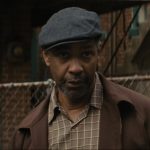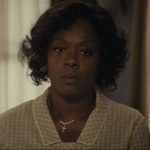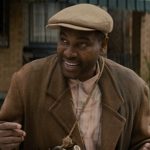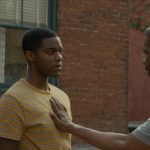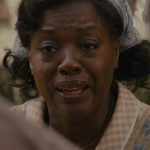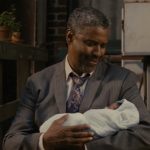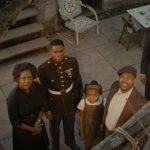Fences – 2016
This was one of those films that I really had no desire to watch. Not that I have anything against Denzel Washington or Viola Davis, but because I got the impression that I was going to get beat over the head with the subject of racism. I was afraid that it was going to be one of those movies which, by the end of the film, I was going to be accused of being a racist because I’m white. Fortunately, that isn’t the focus of the movie at all. In fact, part of the narrative was about how race relations in America were actually improving in the 1950s, giving black people more and better opportunities than before.
The movie was about a black man and his own childhood experiences which included racism and a father who had no love for him. It was about how the pattern repeated itself. As his father neglected him, he also only cared for his children out of a sense of duty instead of love. Denzel Washington played Troy Maxon, the film’s main protagonist. At first, I couldn’t tell if he was a good man or not. He seemed like a good husband and provider. But by the end of the film, I discovered that he was a terrible husband and only a reluctant provider. He was a man who thought of nobody but himself. True, he had a rough childhood, being forced to leave home on his own when he was fourteen. To survive, he had to become a robber and then a murderer.
While serving time in prison, he meets his best friend, Jim Bono, played by Stephen Henderson. After his release, he finds that he has talent as a baseball player and joins the professional Negro League. Troy fathers a child Lyons, played as an adult by Russell Hornsby. He then meets and marries Rose, played by Viola Davis, and the two have a son, Cory, played by Jovan Adepo.
The drama is actually very multi-layered and complex, too much to go into any real detail. It all centers on Troy’s relationship with the rest of the characters. Through his inability to love anyone but himself, he ends up alienating everyone, finding that as he grows older, he is alone. One of his biggest offenses is that Troy has an affair and fathers another child, a daughter named Raynell, eventually played by Saniyya Sidney. Thinking only of his own missed opportunities and happiness, Troy refuses to stop seeing his mistress after he confesses his infidelity to his wife. The girl’s mother dies in childbirth, and Rose agrees to raise the innocent child as her own, though she also rejects Troy as a husband.
The only other character in the drama is Troy’s brother Gabriel, played by Mykelti Williamson. He is an incredibly interesting character. He was wounded in WWI and now has a metal plate in his head. Because of the injury, he has the mental capacity of a child of four or five. Despite his disability, Troy never directs his anger at Gabriel. In fact, it is Gabriel’s sense of innocence and religious delusion that seem to pave the way for the redemption of Troy’s soul after his death. I don’t know. It got a little religiously metaphysical at the end, which wasn’t a bad thing. It made for a good ending with a satisfying sense of closure, though I’m not sure if I agree that Troy’s unrepentant soul deserved redemption… but that’s a completely different discussion.
The movie was nominated for four Oscars and won in only one category. Viola Davis won the Award for Best Supporting Actress. If anyone was to win out of the talented cast, I’m glad it was her. She did an incredible job. Every time I see her, I love her work, her intense performances. She is truly a master of her craft. Washington also did a great job, creating a very complex and engaging character. I also really liked Henderson. His role seems like it might be one that could be easily passed over, but I really liked both the character and the way he was portrayed, almost as Troy’s conscience.
The movie was based on a play that was written by August Wilson. The 1985 play was revived on Broadway in 2010. This was where Washington and Davis first played their parts, earning them both Tony awards. Only once before, when they made the movie Rent in 2005, have I seen a movie use the Original Broadway Cast in its production, and both times, I really liked the result. Obviously, Washington, who directed Fences, made the right choice to do so again. He and Davis really seemed to understand their parts. And I’ll say again how wonderful Davis was.
Denzel Washington also made the decision to be as true to the source material as possible, both in the text of the script and the spirit of August Wilson’s play. Smart move! There was a reason why the play was popular, so why change it. Take note, Hollywood. It worked. Stick to the source material and you will have a better film. In fact, the original play was so well-received that it won the Pulitzer Prize in 1987 for Drama. I’m glad that this film surprised me by being about so much more than racism and race relations. It was about real human drama that just happened to have a race related angle. Great script and great acting. What’s not to like?
